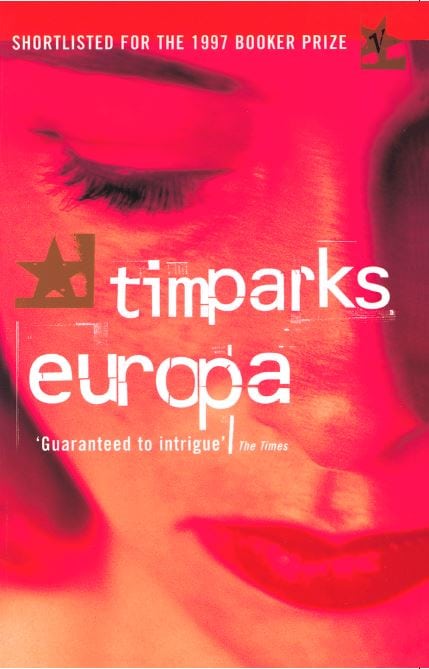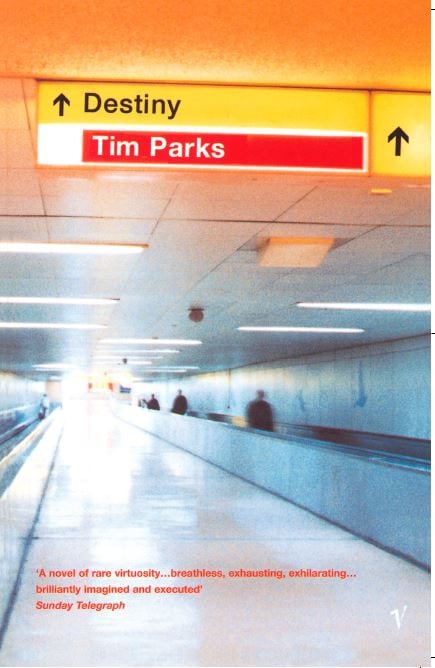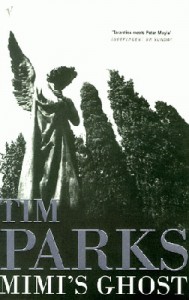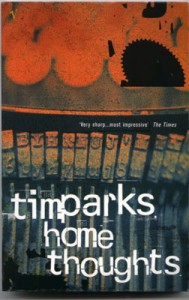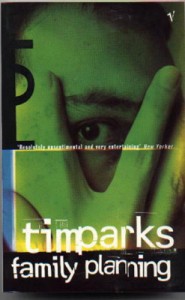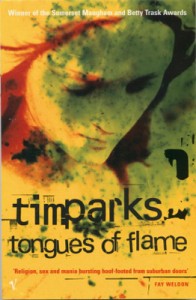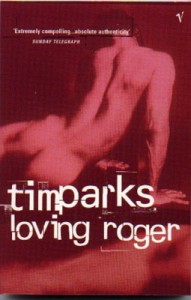There are twenty novels, so here’s a brief intro to help you find your way round them. Click on the links obviously to find out more. The bibliography will give you a straightforward list with dates and publishers and so on.
 Mr Geography is a story of love and pleasure, memory and regret, delight and disaster. And the story of a walk from Lake Constanz to Lake Como. Undertaken three times! By D H Lawrence in 1913. By our lovers, Daniel and Julia, the summer they finally decided to break cover, and by Daniel alone many years later. First sentence: “Many years have passed, Julia is dead, and this summer I
Mr Geography is a story of love and pleasure, memory and regret, delight and disaster. And the story of a walk from Lake Constanz to Lake Como. Undertaken three times! By D H Lawrence in 1913. By our lovers, Daniel and Julia, the summer they finally decided to break cover, and by Daniel alone many years later. First sentence: “Many years have passed, Julia is dead, and this summer I
decided to complete the walk we only began.”
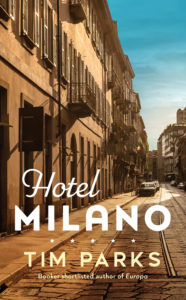 Hotel Milano tells the story of a man determined to live as a recluse, convinced his active life is over, who is nevertheless drawn into the most intimate and unexpected of dramas. A phone call late in the evening invites him to the funeral of an old colleague and rival. In the city of Milan. Frank, who has not followed the news in years has no idea of the crisis he is headed for. Fortunately, at the airport, he has equipped himself with a copy of Tennyson’s Selected Poems…
Hotel Milano tells the story of a man determined to live as a recluse, convinced his active life is over, who is nevertheless drawn into the most intimate and unexpected of dramas. A phone call late in the evening invites him to the funeral of an old colleague and rival. In the city of Milan. Frank, who has not followed the news in years has no idea of the crisis he is headed for. Fortunately, at the airport, he has equipped himself with a copy of Tennyson’s Selected Poems…
 In Extremis completes a group of four novels that began with Europa and runs through Destiny and Cleaver. That is, it is an intense, unrelenting narrative in which a man, Thomas Sanders, simultaneously confronts his past, brought back to him by his mother’s agony, and seeks to make apparently impossible decisions about the future. What results is a titanic struggle between body and mind in a few impossibly hectic days. The New Statesman said of it: a frantic and minutely observed comedy of family, marriage, life and death. There is something in the synaptic twitch of Parks’s prose that brings us closer ot the pressures and rhythms of a lived life than the work of any other contemporary writer I can think of.
In Extremis completes a group of four novels that began with Europa and runs through Destiny and Cleaver. That is, it is an intense, unrelenting narrative in which a man, Thomas Sanders, simultaneously confronts his past, brought back to him by his mother’s agony, and seeks to make apparently impossible decisions about the future. What results is a titanic struggle between body and mind in a few impossibly hectic days. The New Statesman said of it: a frantic and minutely observed comedy of family, marriage, life and death. There is something in the synaptic twitch of Parks’s prose that brings us closer ot the pressures and rhythms of a lived life than the work of any other contemporary writer I can think of.
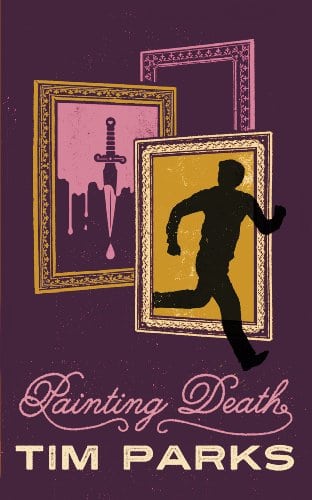 Painting Death brings back Morris Duckworth, he of Cara Massimina and Mimi’s Ghost (see below), after a twenty-break. Older and wiser, he has long left aside the paperweight and the pillow to marry the rich Antonella Trevisan and become a respected member of Veronese business life. But it’s not enough. Never satisfied with being anything short of the best, Morris comes up with a plan to put on the most exciting art exhibition of the decade, based on a subject close to his heart: killing. But as he meets stiff resistance from the Neapolitan director of Verona’s Castelvecchio museum, everything starts to unravel…. The shame of it is that Morris Arthur Duckworth really did not want to have to kill again.
Painting Death brings back Morris Duckworth, he of Cara Massimina and Mimi’s Ghost (see below), after a twenty-break. Older and wiser, he has long left aside the paperweight and the pillow to marry the rich Antonella Trevisan and become a respected member of Veronese business life. But it’s not enough. Never satisfied with being anything short of the best, Morris comes up with a plan to put on the most exciting art exhibition of the decade, based on a subject close to his heart: killing. But as he meets stiff resistance from the Neapolitan director of Verona’s Castelvecchio museum, everything starts to unravel…. The shame of it is that Morris Arthur Duckworth really did not want to have to kill again.
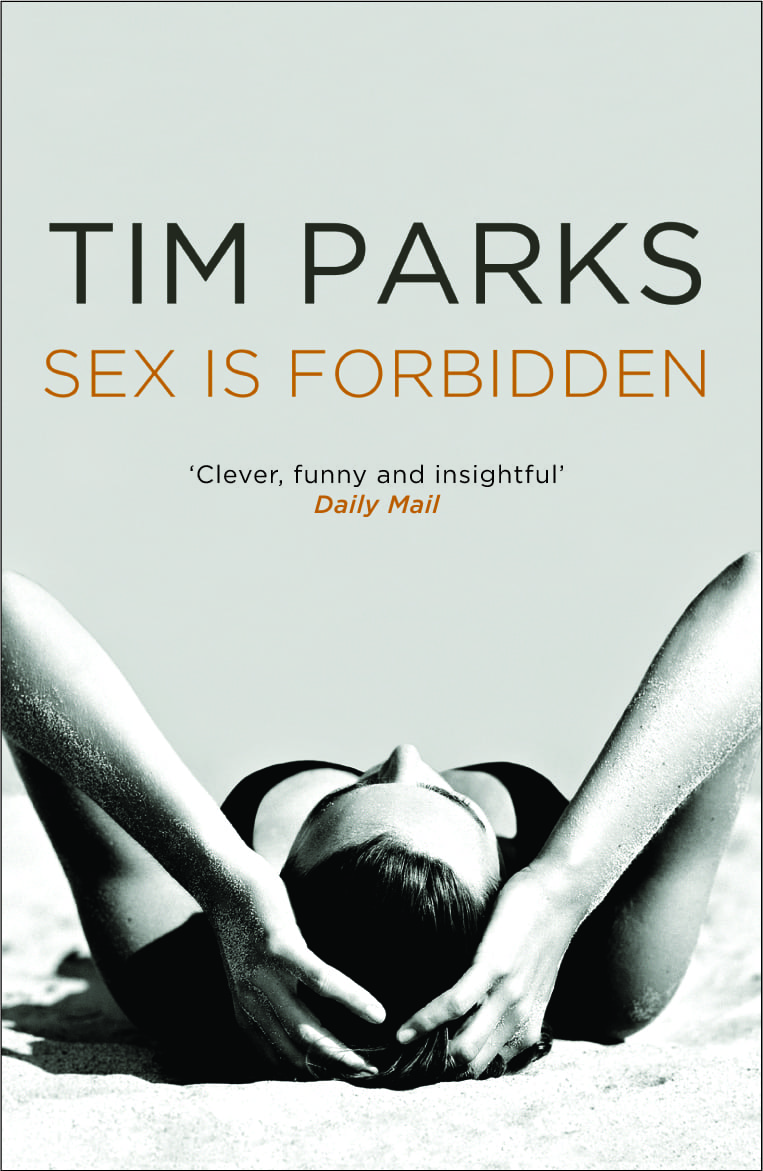 Sex is Forbidden is a “companion novel” to the non-fiction book Teach Us to Sit Still. A wired up, pretty young woman is serving in the kitchen of a Vipassana retreat on a more or less permanent basis, trying rather too hard to reach the profound piece of mind of her buddhist mentors. But when she comes across the diary of one of the men on the retreat, her determination begins to vacillate. This novel is an attempt to savour two possible attitudes to life in profound contrast: an eastern quietism and a western belief in affirmation and self narrative.
Sex is Forbidden is a “companion novel” to the non-fiction book Teach Us to Sit Still. A wired up, pretty young woman is serving in the kitchen of a Vipassana retreat on a more or less permanent basis, trying rather too hard to reach the profound piece of mind of her buddhist mentors. But when she comes across the diary of one of the men on the retreat, her determination begins to vacillate. This novel is an attempt to savour two possible attitudes to life in profound contrast: an eastern quietism and a western belief in affirmation and self narrative.
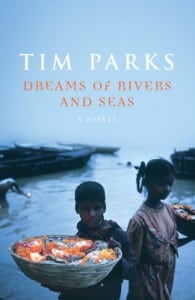 Dreams of Rivers and Seas is my only novel set outside Europe, in the pullulating enigma of India. Instead of an obsessive and driven consciousness at the centre of the story, the main character, Albert James, is dead, leaving those who knew him, or thought they did, disorientated and confused. The closer they get to the conundrum of his life, the more India imposes its hectic multiplicity, and people start to behave in ways they never imagined they would. How far is it ever possible really to understand a situation and then act decisively to improve it?
Dreams of Rivers and Seas is my only novel set outside Europe, in the pullulating enigma of India. Instead of an obsessive and driven consciousness at the centre of the story, the main character, Albert James, is dead, leaving those who knew him, or thought they did, disorientated and confused. The closer they get to the conundrum of his life, the more India imposes its hectic multiplicity, and people start to behave in ways they never imagined they would. How far is it ever possible really to understand a situation and then act decisively to improve it?
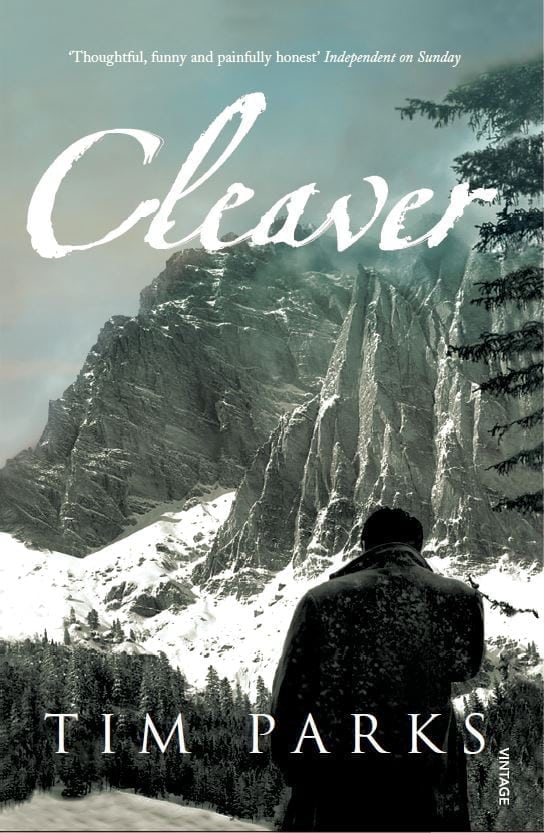 Cleaver is a return to the more intense styles of Europa and Destiny, but in the landscape of Rapids. Britain’s foremost journalist and political pundit, in every sense a heavy weight, suddenly and dramatically abandons career and family to take refuge in an Alpine hut in the South Tyrol. But the attempt to escape the public stage and voice only intensifies and accelerates the voice inside his head, bringing his scandalous London life home to him with disquieting clarity. Fortunately there are the Tyrolese speaking peasants for relief …
Cleaver is a return to the more intense styles of Europa and Destiny, but in the landscape of Rapids. Britain’s foremost journalist and political pundit, in every sense a heavy weight, suddenly and dramatically abandons career and family to take refuge in an Alpine hut in the South Tyrol. But the attempt to escape the public stage and voice only intensifies and accelerates the voice inside his head, bringing his scandalous London life home to him with disquieting clarity. Fortunately there are the Tyrolese speaking peasants for relief …
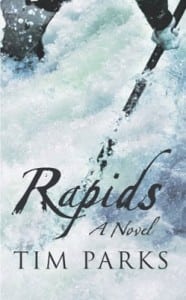 Rapids was another major shift of subject matter and style. Some years ago I became an enthusiastic canoeist. I found myself drawn almost obsessively to white water kayaking and for a number of summers travelled to the Alps with a group of English canoeists. This is a novel about one such trip. It brings together a large and varied cast of adolescents and adults in the high mountain scenery of the South Tyrol. Probably my only book with extended action sequences. A great pleasure to write.
Rapids was another major shift of subject matter and style. Some years ago I became an enthusiastic canoeist. I found myself drawn almost obsessively to white water kayaking and for a number of summers travelled to the Alps with a group of English canoeists. This is a novel about one such trip. It brings together a large and varied cast of adolescents and adults in the high mountain scenery of the South Tyrol. Probably my only book with extended action sequences. A great pleasure to write.
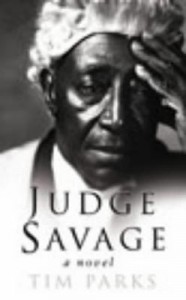 Judge Savage, a novel that moves away from the obsessive voice of the previous two with a new openness to all kinds of characters and events, personal crises, street crime, courtroom drama. The first line signals its connection with and departure from the other books: “There is no life without a double life, and yet one grows weary.”
Judge Savage, a novel that moves away from the obsessive voice of the previous two with a new openness to all kinds of characters and events, personal crises, street crime, courtroom drama. The first line signals its connection with and departure from the other books: “There is no life without a double life, and yet one grows weary.”
Europa and Destiny are very much a pair, as are a number of my earlier novels. By now I was after something radically new in terms of structure, rhythm and voice. Both novels are feverish and fast, equally engaging emotionally and intellectually. Europa runs a disastrous love affair against a trip to the European Parliament, Destiny presents a man trying to leave his Italian wife of thirty years after the announcement of the suicide of their only son. But funny, I promise you. One couldn’t bear to write these stories without the humour.
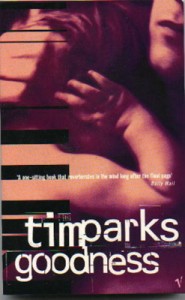
 Goodness is the culmination of what I now think of as my ‘early’ work, a return to the first person to describe a man seeking technical solutions to such enigmas as a difficult marriage and a handicapped child. Shear looks for a completely different voice, at once dramatic and intellectual, offering a thriller seen through the eyes of a geologist on the edge of a nervous breakdown.
Goodness is the culmination of what I now think of as my ‘early’ work, a return to the first person to describe a man seeking technical solutions to such enigmas as a difficult marriage and a handicapped child. Shear looks for a completely different voice, at once dramatic and intellectual, offering a thriller seen through the eyes of a geologist on the edge of a nervous breakdown.
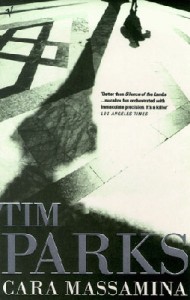 Two crime novels set in Italy, Cara Massimina and Mimi’s Ghost were written as a kind of relaxation between the others. They present the atrociously amoral Morris Duckworth as he tries to worm his way into provincial Italian society, more often than not with the help of the proverbial blunt instrument.
Two crime novels set in Italy, Cara Massimina and Mimi’s Ghost were written as a kind of relaxation between the others. They present the atrociously amoral Morris Duckworth as he tries to worm his way into provincial Italian society, more often than not with the help of the proverbial blunt instrument.
Then there are two largely epistolary novels: Home Thoughts follows the feckless lives of a group of British ex-pats in Verona, and considers the distance between their real experience and the picture they present to the folks back home; Family Planning gives the correspondence of a group of people all determined to avoid looking after their schizophrenic relative Raymond.
These two early works are very much a pair as far as style and approach are concerned. Tongues of Flame and Loving Roger are both short, intense first-person dramas of around 150 pages. The first gives a fifteen-year-old’s account of a disastrous encounter with charismatic religion, demons and exorcisms included; the second opens with a young woman announcing that she has murdered her boyfriend. Pathos and dry humour is the mix, intimacy and misunderstanding the tinder box.

